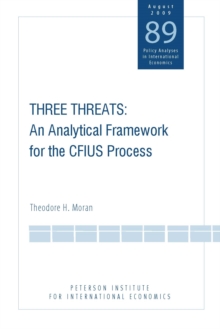
The Implications of China-Taiwan Economic Liberalization PDF
by Daniel H. Rosen, Zhi Wang
Part of the Policy Analyses in International Economics series
Description
China and Taiwan have built one of the most intertwined and important economic relationships in the world, and yet that relationship is not mutually open, compliant with World Trade Organization norms, or even fully institutionalized. What's more, despite massive trade and investment flows, the boundary between the two is a serious flashpoint for potential conflict. But leaders in Beijing and Taipei have committed to normalize and deepen their economic intercourse and open a new post-Cold War era in their relationship. While the political significance of this gambit has captured attention worldwide, the scope of opening intended and the bilateral, regional, and global effects likely to ensue are as yet poorly understood.
This volume attempts to remedy that uncertainty with careful modeling combined with a qualitative assessment of the implications of the cross-strait economic opening now agreed in an Economic Cooperation Framework Agreement (ECFA). The study explores the implications for Taiwan and China, for their neighbors, and for the United States if this undertaking is fully implemented by 2020.
Information
-
Download - Immediately Available
- Format:PDF
- Publisher:Peterson Institute for International Economics
- Publication Date:15/12/2010
- Category:
- ISBN:9780881326321
Information
-
Download - Immediately Available
- Format:PDF
- Publisher:Peterson Institute for International Economics
- Publication Date:15/12/2010
- Category:
- ISBN:9780881326321










